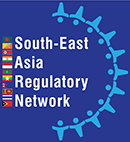Overview
The below provides and overview of the achievements of SEARN as well as its current workplan:
Current work plan
The work plans are adopted by the Assembly of the Members of SEARN. The latest 2024-2025 work plan was adopted during its meeting on 3-4 July 2024.
| Action point | Lead WG | Need | Actions |
|---|---|---|---|
| 1 | 2 | Capacity building to support Members in achieving their objectives of Maturity Level using the Global Benchmarking Tool and/or WLA status |
|
| 2 | N/A | Experience sharing |
|
| 3 | 4 | Facilitate information Sharing |
|
| 5 | 2 | Facilitate reliance |
|
| 8 | 1 | Improve the use and access to reference standards |
|
| 9 | 1 | Strengthen collaboration between National Quality Control Laboratories to develop capacity |
|
| 12 | 4 | Ensure preparedness against public health emergencies |
|
| 15 | 3 | Strengthen the capacity to assess and manage risks associated with medical products |
|
| 16 | 3 | Develop a regional mechanism to detect and review safety signals |
|
| 17 | 5 | Capacity building for medical devices, including IVD |
|
| 18 | 5 | Facilitate reliance for medical devices, including IVDs |
|
| 19 | 2 | Strengthen the capacity of SEARN Members to address antimicrobial resistance |
|
| 20 | 4 | Strengthen the capacity of SEARN Members to monitor and address shortages |
|
| 21 | 4 | Strengthen Regulatory Information Management Systems to support information sharing |
|
